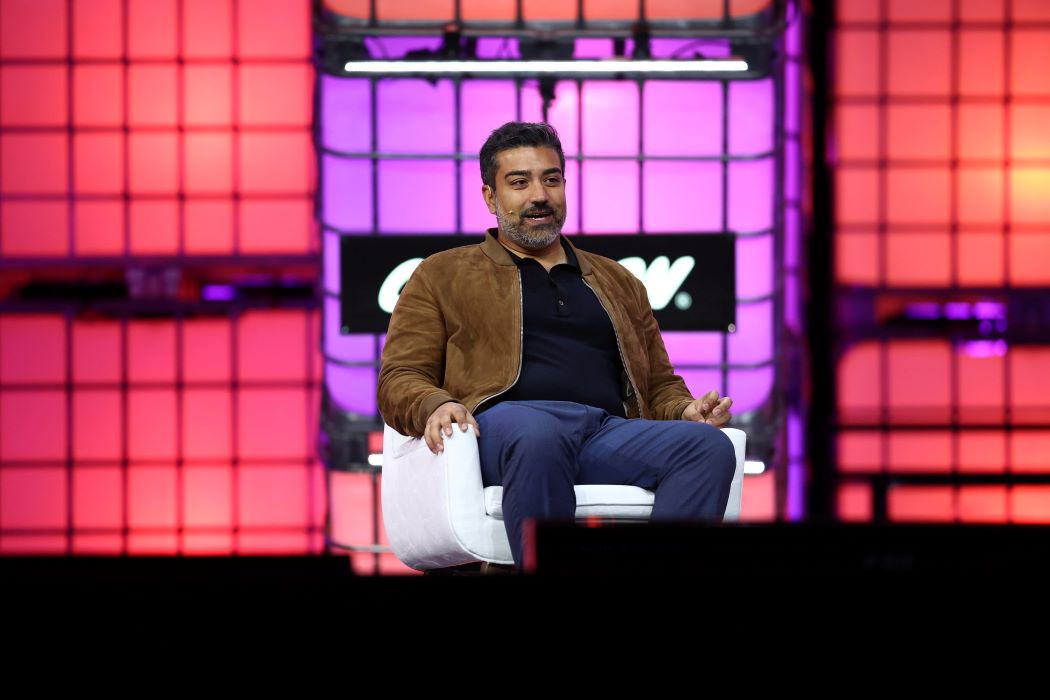
Combat Rock: the album that killed The Clash
From the rear of a crowd estimated to number as many as 200,000 people, The Clash might well have looked like just another stadium band. Headlining the opening night of the four-day US Festival at Glen Helen Regional Park in San Bernardino, California, on May 28 1983, the English quartet were being paid half a million dollars for their night’s work. At last in receipt of the glittering prizes of which other musicians dream, Joe Strummer decided to rebel.
“Look,” he told the audience between songs, “I know you’re all standing there looking at the stage, but I’m here to tell you that the people who are on this stage, and are gonna come on, and have been on already, they’re nowhere. Absolutely nowhere. Can you understand that?” Perhaps concerned that insulting a line-up that included David Bowie, Willie Nelson, Stevie Nicks and U2 wasn’t quite strong enough, Strummer also told his paying public that “the motto of America” is “you make, you buy, you die”.
In the spring of 1983, The Clash were a big deal in the United States. With sales of more than two million copies, the quartet’s most recent album, 1982’s Combat Rock – a 40th anniversary edition of which was recently re-issued in expanded form – had been certified double platinum. The devilishly subversive Rock The Casbah, a song inspired by Iranian state authorities doling out corporal punishment to anyone caught listening to western music, had reached the top 10. The previous autumn, the band had played for 50 minutes in the nation’s largest stadiums as special guests to The Who.
Only problem was, The Clash were tearing themselves apart. After sacking drummer Topper Headon, on whose foundation their enviable suppleness had been built, by the time the musicians arrived at the US Festival guitarist Mick Jones and bassist Paul Simonon had stopped speaking to one another. Declining to perform an encore at the end of a 20-song set that would be the last Jones ever played with the band, a voice from the Public Address system announced, “The Clash have left the building. You needn’t scream anymore, I guess.”
“I think it was the unexpected success of Rock The Casbah combined with the fact that we were so tired; tired of each other, tired of the road, tired of the studio,” was how Joe Strummer explained the group’s death spiral in the autobiography The Clash. “We were burned out. It just blew us apart.”

But even The Clash weren’t exempt from the kind of petty jealousies that permeate the music industry. Any pleasure the band might have felt at being valued at $500,000 by the organisers of the US Festival was lessened by a sense of grievance that fellow headliners Van Halen were being paid three times this amount. Amused by the kerfuffle, onstage the following night, the American band’s frontman, David Lee Roth, assured the audience that the bottle from which he was drinking contained real liquor. “The only people who put ice tea in Jack Daniels bottles is The Clash, baby,” he chided.
In truth, though, the derailment of The Clash was down to a substance far stronger than sour-mash whisky. Dismissed on account of a worsening heroin habit, with almost unbearably poignancy Topper Headon spent miserable weeks listening to Rock The Casbah – a song he co-wrote and on which he played drums, piano and bass guitar – on the radio in a squat in West London. Such was the song’s international ubiquity that it earned the drummer £200,000 with which he was able to bankrupt himself in the space of just 18-months.
“[Being in the band] was absolutely the best time of my life and I’d like to apologise for letting the side down,” he said in the documentary The Clash: Westway To The World. “For going off the rails. But I think if it happened again, I’d probably do the same thing. I’m just that sort of person, you know?… I was out of control. I remember being sick on Buddy Holly’s grave, which didn’t go down too well. I was a Keith Moon fan, you know. Live fast, die young, and I completely lost the plot.”
“It was the end of it when Topper got sacked,” Joe Strummer said. “It was never any good after that. We messed with the original four. It was limping to the death after Topper got sacked. Hopeless.”
Certainly, it seemed as if the final years of The Clash offered an ecosystem of perfect chaos for everyone involved. Joe Strummer slept with Headon’s girlfriend after she and the drummer had a row on the road. Concerned by slow ticket sales for the Scottish leg of an upcoming UK tour, manager Bernie Rhodes not only convinced Strummer to “disappear for a bit” – decamping to the City of Lights, he ran the Paris marathon – but also allowed Mick Jones and Paul Simonon to believe that the frontman was a bona fide missing person. On a tour of the Far East, Simonon was hospitalised with a tropical disease after jumping in a fetid puddle.
“Joe and I got friendly with some monks who wore orange robes and we took them to see Paul in hospital, and they were really excited because he had a shower in his room,” remembered Jones in yet another as-you-do anecdote from The Clash book. “Then the monks started coming to the hospital to have showers, loads of them queueing up to get in the shower.” After receiving a knock on his hotel room, Paul Simonon convened a band meeting at which it was agreed that a spokesman for indigenous Australians would be allowed to advocate for his cause from the stage during the group’s six-night stand at the Capitol State Theatre in Sydney.
Incredibly, when it came to recording Combat Rock, The Clash decided to hook themselves up to a mobile recording studio parked outside a squat near London’s Latimer Road. With the album unfinished by the time they took to the road, the group attempted to finish the sessions in the night’s small hours in various studios in Asia and Australia. Realising their work in progress was, according to their bassist, “a sprawling mess”, finally they decamped to Electric Ladyland studios, in New York, at which Simonon and Jones embarked on a two-hour stand-up row about sound levels on the track Know Your Rights.
“Things were starting to get a bit silly around then,” Jones said. “Bernie [Rhodes] was saying, ‘Make a New Orleans record’ and I was saying, ‘Huh? I want it to be a rock’n’roll album’. It kind of threw me, but we all tried to do some New Orleans rhythms at first. None of us seemed to really be communicating, and it was all driving us a bit crazy, I think. Nobody seemed to be enjoying it any more.”
“I think we made Combat Rock really quickly,” Joe Strummer recalled. “I don’t remember being in the studio for too long, maybe because they weren’t joyful sessions and we couldn’t see a way forward. Maybe we’d run out of operative juices at the time, but I think it was all over pretty quickly. The mind closes off things, right? And I don’t have too much of a memory of those sessions.”
Four decades after its original release, Combat Rock remains a bamboozling experience. With its second half mired in meandering mediocrity, certainly it’s hard to credit the numerous glowing reviews that have greeted its re-issuance in expanded form. Try as I might, I can think of no other group quite as deficient as The Clash at editing their apparently boundless creativity. Despite its irresistibility as a hit single, even the lyric to Should I Stay Or Should I Go sounds as if it might have been written by Mick Jones from Foreigner.
But when Combat Rock decides to shine, it does so with incandescent brilliance. With its gently pulsating beat underpinning one of the most evocative socio-political lyrics of the 20th Century, certainly Strummer was right to describe Straight To Hell as “one of our absolute masterpieces”. At the other end of the dial, rather fittingly, the breathlessly brilliant Rock The Casbah, a party anthem to this day, was written and recorded in a 36-hour jag that ended at 20-minutes to midnight on New Year’s Eve.
“We took the E train from [Greenwich] Village up to Times Square,” Strummer recalled. “I’ll never forget coming out of the Times Square subway exit, just before midnight, into a hundred billion people, and I knew we’d just done something great.”

Probably it looked much the same as the crowd in San Bernardino that left Joe Strummer jaded and drained. Certainly, one wonders if the energies of The Clash might have been restored by utilising two luxuries that rock acts are so often denied – time and care. As Mick Jones said, “I don’t remember having any holidays for the whole time we were a band. It was just one thing after another.” Under those circumstances, who wouldn’t be knackered?
“I think we should have taken a year off, but we didn’t think in those terms then,” Joe Strummer said in the documentary The Clash: Westway To The World. “If we’d recharged our batteries the band would have still been going today, perhaps.”
Or perhaps not. Perhaps it’s exactly as the band’s own documentarian, Don Letts, once put it. “The truth of the matter,” he said, “is that most bands [have a] seven or eight year lifespan.”
Much like The Clash themselves, the group’s appearance at the US Festival ended in unpleasantness. Seeing Mick Jones set upon by a security guard, Paul Simonon leapt to the defence of a man he could barely stand. “Some bouncer started hitting Mick and that pissed me off,” the bassist remembered, “so I went over and started laying into this guy’s head. It was unfair. Mick’s not exactly Mr Muscles.”
In fighting for the underdog, at least The Clash went out as they came in.
Combat Rock is available now on Sony Music










































![iFi's GO Bar Kensei Dongle DAC Supports K2HD Technology With Some Samurai Swagger [Updated] iFi's GO Bar Kensei Dongle DAC Supports K2HD Technology With Some Samurai Swagger [Updated]](https://i0.wp.com/cdn.ecoustics.com/db0/wblob/17BA35E873D594/33FF/45A11/QTXOLJR4xDKSNMMk2WlTgjaIlvSgcYpeU1xJzUwIoYs/ifi-go-bar-kensei.jpg?w=768&ssl=1)































